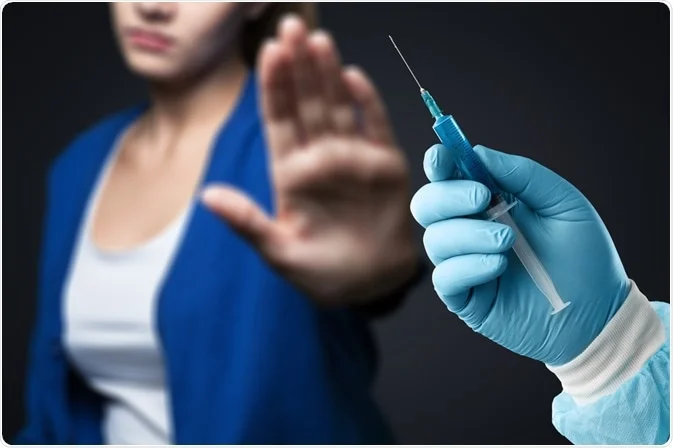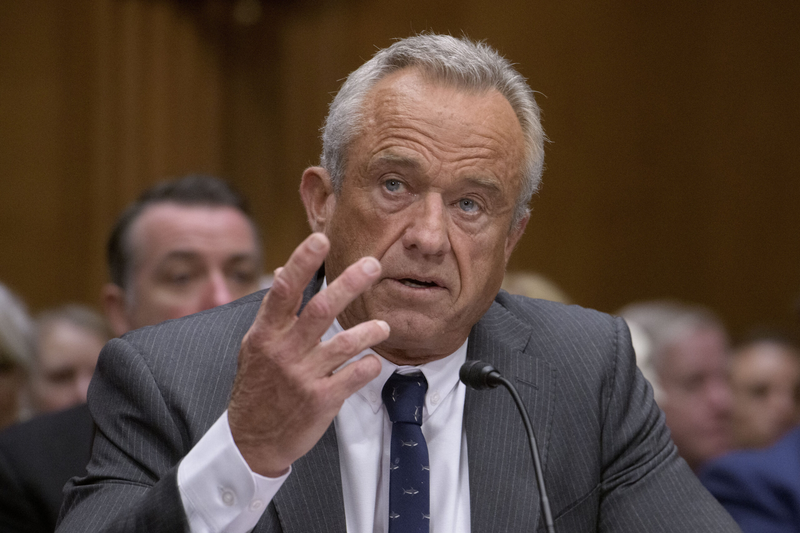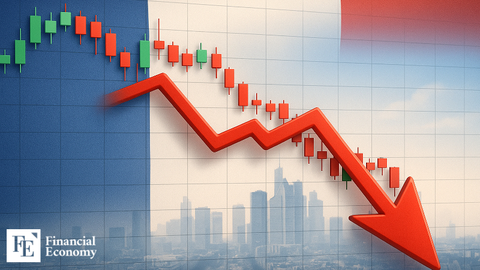The Public’s Growing Concern Over the Anti-Vaccine Movement in the U.S.
Input
Modified
Falling Vaccination Rates and the Rise of Vaccine Hesitancy The Impact of RFK Jr. and the Trump Administration The Path Forward and the Public Health Implications

Falling Vaccination Rates and the Rise of Vaccine Hesitancy
In recent years, the United States has experienced a concerning trend: a rise in the anti-vaccine movement and a decrease in childhood vaccination rates. This development has prompted apprehension among public health officials, educators, and parents, as preventable diseases, including measles and whooping cough, have reemerged throughout the nation. The situation has become even more urgent under the Trump administration, as Robert F. Kennedy Jr., a well-known vaccine skeptic, has been appointed as Secretary of Health and Human Services (HHS). Nevertheless, the emergence of vaccine hesitancy in the United States predates Kennedy's tenure, indicating a more extensive societal change in attitudes toward immunization.
In recent years, there has been a consistent decrease in the vaccination rates of school-aged children. Measles immunization coverage for preschool-aged children has decreased from 95% in 2019 to less than 93% in 2023 on a national scale.. In certain jurisdictions, such as Idaho, the coverage rate has declined to below 80%, which is a significant deficiency from the 95% threshold required to preserve herd immunity. This decline has resulted in an increase in epidemics, with more than 130 measles cases reported in Texas and New Mexico alone in early 2025. Public health experts have long cautioned that the resurgence of diseases that had been virtually eradicated in the United States could result from a failure to maintain high vaccination rates.
Children, particularly those who are too young to receive vaccines or have compromised immune systems, are disproportionately affected by the resurgence of these diseases. An increase in personal belief exemptions, which have reached an all-time high of 3.3% among U.S. kindergarteners, has also been attributed to the decline in vaccination rates. This trend is particularly concerning, as even a small number of unvaccinated individuals can contribute to the spread of outbreaks.
The politicization of public health policies, distrust in government health agencies, and the dissemination of misinformation through social media have all contributed to the decrease in vaccine adoption. The medical community has repeatedly refuted fraudulent claims that link vaccines to autism, chronic illnesses, and other health issues, which have misled many parents. The dissemination of misinformation persists in eroding public trust, resulting in a significant number of families choosing to forgo routine immunizations, despite the overwhelming scientific evidence that supports the safety and efficacy of vaccines.

The Impact of RFK Jr. and the Trump Administration
The appointment of Robert F. Kennedy Jr. as Secretary of Health and Human Services by President Donald Trump in early 2025 has heightened concerns within the medical community. Kennedy, a long-standing opponent of vaccines, has advocated for discredited vaccine safety theories and has accused the pharmaceutical industry of concealing potential risks. His appointment represents a substantial departure from the prior administrations, which have historically prioritized vaccine advocacy and public health initiatives.
Medical professionals and public health advocates are concerned that Kennedy's leadership could exacerbate the current undermining of vaccination initiatives. He proclaimed the establishment of a commission to reassess the childhood vaccine schedule shortly after assuming office, citing apprehensions regarding the potential correlation between vaccines and chronic illnesses. Many experts are concerned that Kennedy's actions will legitimize the anti-vaccine movement and increase parental hesitancy, despite his assertion that he does not intend to eliminate vaccine requirements.
The Centers for Disease Control and Prevention (CDC) and the World Health Organization (WHO) have both issued recommendations to Kennedy, which underscore the significance of maintaining high vaccination rates to prevent outbreaks. Public health officials have urged Kennedy to implement these recommendations. Nevertheless, Kennedy's prior statements and associations with vaccine-skeptic organizations indicate that his approach to public health may be substantially different from that of his predecessors.
The anti-vaccine movement in the United States has been expanding for over a decade, despite the fact that Kennedy's appointment has exacerbated the national debate regarding vaccines. The measles, mumps, and rubella (MMR) vaccine was falsely linked to autism in a study that has since been discredited, which fuelled the movement's growth in the early 2000s. The study's claims, despite being retracted and widely debunked, sparked dread among parents and contributed to a wave of vaccine hesitancy.
The movement was further accelerated by the dissemination of misinformation through social media platforms. Conspiracy theorists, anti-vaccine influencers, and even certain personalities have contributed significantly to the dissemination of false narratives regarding vaccine safety. The issue was exacerbated by the COVID-19 pandemic, which led to a greater degree of skepticism toward public health officials and government institutions. The resistance to immunization programs was further exacerbated by the perception that vaccine mandates were an intrusion on personal freedoms by a portion of the American population.
The increase in vaccine exemptions has also been influenced by legislative changes in certain states. Although some states have instituted more stringent vaccination laws, others have broadened exemptions for religious and personal beliefs, thereby facilitating the process for parents to choose not to vaccinate their children. This has led to a diverse array of policies that have been implemented throughout the nation, resulting in some states achieving high immunization rates and others struggling to maintain sufficient coverage.

The Path Forward and the Public Health Implications
The imperative necessity for a comprehensive public health strategy to counteract misinformation and increase vaccine uptake is underscored by the resurgence of vaccine-preventable diseases. Public health officials emphasize that it is imperative to protect not only individuals but also entire communities, particularly vulnerable populations such as neonates, the elderly, and immunocompromised individuals, by maintaining high vaccination rates.
A multifaceted approach is necessary to reestablish public trust in vaccines. Initially, educational campaigns should concentrate on the debunking of misconceptions and the provision of concise, scientifically validated information regarding the advantages of immunization. Engaging with community leaders, religious organizations, and local healthcare providers can assist in the dissemination of accurate information and motivate parents who are hesitant to vaccinate their children.
Furthermore, policymakers should contemplate the implementation of more stringent vaccine requirements for school entry and the reduction of the number of non-medical exemptions. A coordinated national effort is required to guarantee consistent vaccination coverage across all regions, despite the fact that some states have already taken steps in this direction.
Lastly, it is imperative that social media companies take responsibility for preventing the dissemination of misinformation. Although certain platforms have implemented measures to identify or eliminate misleading content regarding vaccines, additional policies are required to prevent the dissemination of incorrect information that undermines public health initiatives.
Recent epidemics of measles and other preventable diseases serve as stark reminders of the consequences of vaccine hesitancy, underscoring the severe threat to public health that the decline in vaccination rates in the U.S. poses. The appointment of RFK Jr. as HHS Secretary has only served to exacerbate concerns, as he has a history of advocating for vaccine skepticism. Nevertheless, the anti-vaccine movement's origins are far-reaching and extend beyond his tenure, suggesting a more extensive crisis of misinformation and a deteriorating trust in public health institutions.
Government agencies, healthcare professionals, educators, and social media platforms must collaborate to resolve this matter. The United States can counteract misinformation, strengthen vaccine policies, and prioritize education in order to reverse the trend of declining vaccination rates and safeguard future generations from preventable diseases. Science must inform policy decisions to guarantee the safety and well-being of all Americans, and public health should continue to be a bipartisan priority.





















